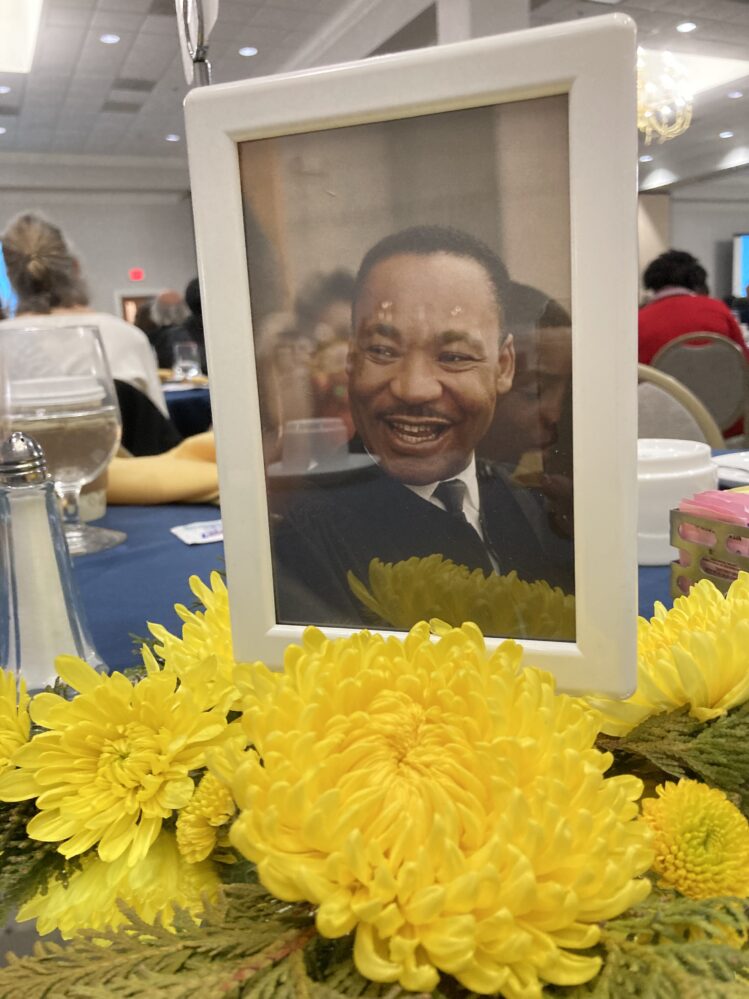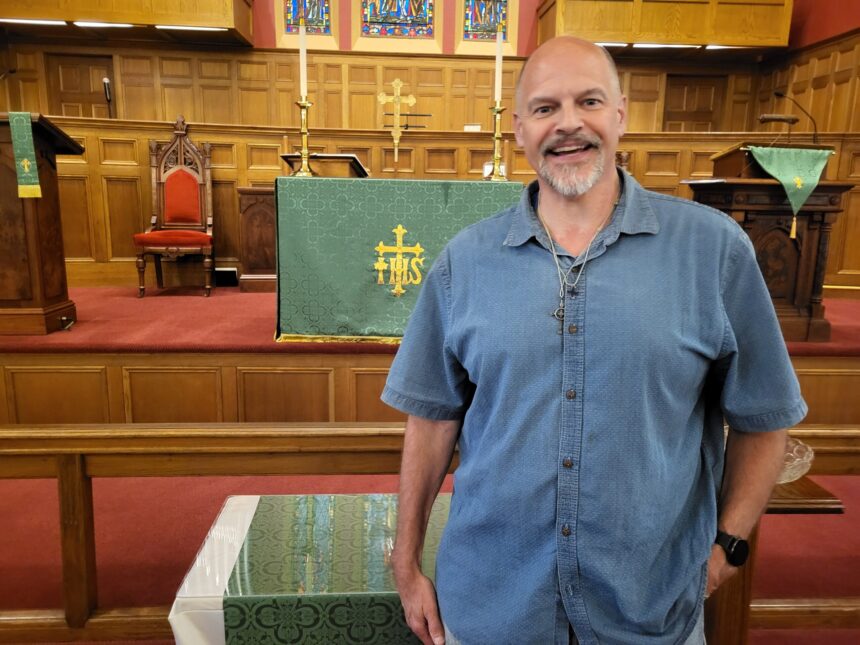
Every time Virginia Senator Tim Kaine studies Martin Luther King Jr., he learns something new.
King wrote and spoke about and worked to end many inequities that continue to plague American society, Kaine noted at in his keynote address at the annual Dr. Martin Luther King Jr. Prayer Breakfast Monday morning at the Fredericksburg Convention Center, but he considered one—healthcare—to be “the most shocking,” Kaine quoted.
Piggybacking on words given by Olugbenga Obasanjo, director of the Rappahannock Health District, Kaine focused his keynote speech on healthcare inequities, particularly in the area of infant and maternal mortality.
Before addressing the challenges that still exist in this area, Kaine drew attention to the progress that has been made towards equity—something else he said King would have done.
“King would recognize progress when it happened,” Kaine said, and would then try to harness that momentum to inspire further progress.
Kaine drew attention to the historic events that occurred in the Viriginia House of Delegates last week. The state where enslaved Africans were first brought in 1619 and where “the architecture of slavery was constituted,” Kaine said, elected its first-ever Black speaker, Del. Don Scott.
With Lieutenant Governor Winsome Sears serving as the presiding officer of the state Senate, and Louise Lucas’s election as president pro tempore serving in Sears’s absence, both houses in the General Assembly are led by African Americans.
Kaine then spoke about healthcare inequity and stressed that inequity cannot be solved by equality.
“People are trying to turn ‘equity’ into a bad word,” he said. “They like the word ‘equality’ better. But sometimes strict equality won’t get the job done.”
As an example, Kaine spoke about Virginia’s infant mortality rate, which when he became governor in 2005 was the 30th-worst in the country. Previous governors had noticed this, but had implemented statewide programs to solve the problem, but this had “spread resources thinly” without yielding results.
“The problem,” Kaine was told by his health department director, “is 10 cities and counties, and when those communities improve, Virginia improves.”
As a result of funneling resources to these communities, Virginia’s infant mortality rate has begun to improve—it now ranks 23rd.
Kaine said this success, which required a focus on equity over equality, can be an inspiration as Virginia looks to improve the rate of maternal mortality, which nationwide is two times higher than that of the United Kingdom, Germany and France and three times higher than in Spain, Italy, Japan, and several other countries.
Driving this statistic is the fact that Black women are three times more likely to die from a pregnancy-related cause than white women, according to the Centers for Disease Control.
The Rappahannock Area Health District is not immune from this grim statistic, Obasanjo said. One program that has been shown to help improve outcomes for mothers, he said, is a doula program.
Doulas are advocates for mothers, he said, and can help them navigate the healthcare system. However, for many years there has been no local doula training program. That will change this summer, with the establishment of a doula training program at Germanna Community College, Obasanjo announced.
He asked attendees at the breakfast to use their voices and advocacy to support the program and other efforts to reduce these drastic inequities.
Kaine also encouraged continued work towards approaching King’s vision of an equitable society.
“You can steer by the North Star. You can’t reach it,” he said. “We have to stay at it. This country needs you.”
The annual event, which was sold out this year, is sponsored by the Fredericksburg Branch of the NAACP.
MANAGING EDITOR AND CORRESPONDENT




